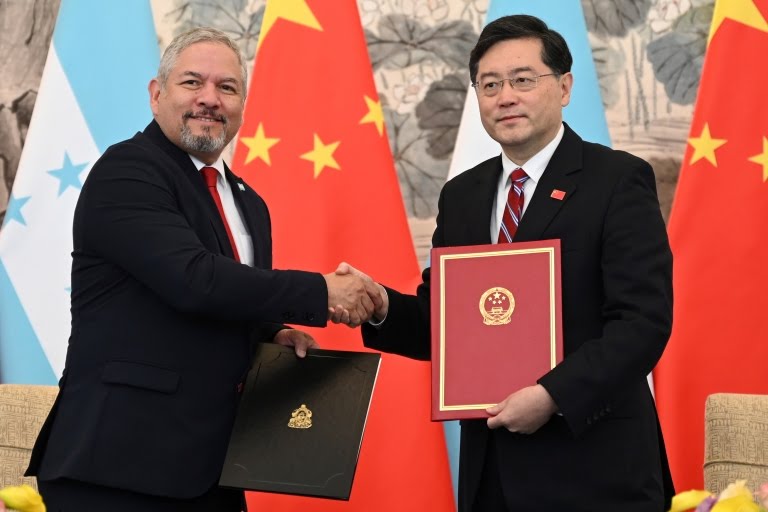China claims there were no conditions placed on Honduras’ recent decision to sever its long-standing diplomatic ties with Taiwan and forge formal ties with Beijing.
Mao Ning, a spokesman for the Chinese Ministry of Foreign Affairs, made the announcement on Monday, one day after the foreign ministers of China and Honduras joined forces to establish relations in Beijing.
When asked if China would provide the aid Tegucigalpa’s administration allegedly requested from Taiwan, Mao responded, “Diplomatic connections are not anything for trade.”
According to the Reuters news agency, Eduardo Enrique Reina, the foreign minister of Honduras, wrote to Taiwan earlier this month asking for a loan of $2.5 billion. According to the news agency, which used a copy of the letter as evidence, the loan was meant to assist pay off debt as well as provide money for the building of a hospital and a dam.
Afterwards, Honduras denied having asked for $2.5 billion in aid, but Taiwan’s Foreign Minister Joseph Wu claimed Honduras had asked for “a heavy price” to keep the relationship going.
Honduras’ action was criticized by Taiwanese President Tsai Ing-wen as “part of a sequence of China’s bullying and intimidation.”
On the other hand, Mao declared on Monday that “we aim to inform Taiwan authorities that Taiwan independence is a dead end, dollar diplomacy has no way through, [and] any designs that go against the stream of history are doomed to fail.”
Since the end of the Chinese Civil War in 1949, China and Taiwan have been engaged in a conflict over diplomatic recognition.
The democratically elected government in Taipei vigorously contests China’s assertion that Taiwan is one of its provinces with no right to interstate relations.
Beijing has invested enormous sums of money to promote its “One China” agenda. Observers observe that some Latin American nations have switched their diplomatic ties from Taiwan to Beijing as a result of a spike in Chinese development and political participation.
For instance, Costa Rica and China established formal ties in 2007. Then starting in 2017, Panama, El Salvador, Nicaragua, and the Dominican Republic cut ties with Taiwan and established relations with China.
Taiwan is an integral part of Chinese territory, according to a statement from Honduras’ foreign ministry announcing the establishment of ties with Beijing on Saturday.
After the changes, there are now only 13 nations that formally recognize Taiwan’s sovereignty. Some strong Western nations, including the United States, support the island despite their official recognition of Beijing’s administration.
Certain Latin American states and a number of South Pacific island governments are among Taipei’s remaining diplomatic allies. Vatican City and Eswatini, formerly known as Swaziland, both have diplomatic relations with Taiwan.
This week, Taiwan’s President Tsai is scheduled to leave for a 10-day trip to diplomatic allies Guatemala and Belize, which will include a quick stopover in the US. The latest change coincides with that departure.
Furthermore commonly perceived as a vote on the nation’s diplomatic ties with the island is a forthcoming election in Paraguay.





